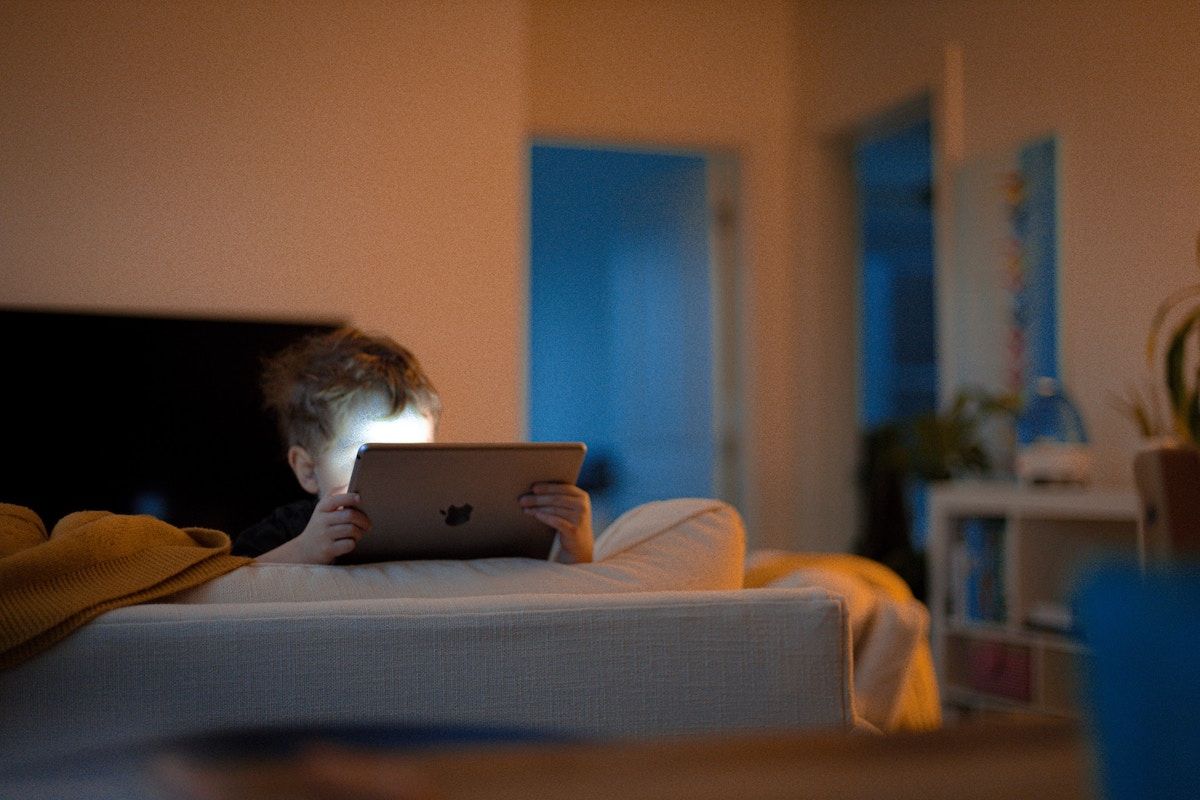Strategies to manage screen time with kids
As a mental health counselor who works with children, I frequently hear parents asking, “How much screen time should kids have -- especially in the summer?” In my private practice, where I have worked with children and teens for more than a decade, I see first-hand the damage that overuse of screens can create. I also have solutions to help parents and their kids create a healthy relationship with screens. Here is a rundown of the problems of too much screen time with kids, as well as some solutions.

The problem with kids and screen time
While we can all see some benefits in the use of screened devices with children, let's focus more on the concerning behaviors related to screen time overuse. The American Academy of Child and Adolescent Psychiatry (AACAP) recommends serious limits on screen time: total ban for babies under two years old, one hour of high-quality programming for kids age two to five, and setting limits with older children. Here are the key reasons for these limits:
- Addictive-quality responses – dopamine spikes and dips – related to withdrawal from screens.
- Reduced/negatively impacted social skills among children with average capacity for social engagement.
- Decreased capacity to use the creative mind with spontaneity.
- A reduction in magical thinking and pretend play in young children.
- Less physical activity, which keeps children physically and mentally healthy (this could mean anything from riding bikes to participating in a group sport).
- Reduced distress tolerance with change.
Social media challenges
Adding the complication of social media to a child’s device can lead to some of these negative consequences:
- A reduced level of patience (i.e., need for instant gratification).
- Hampered self-esteem development and negative impacts on self-talk.
- An increase in fear of failure or judgment from others, especially in public settings. This can lead to less courage to try new things if they don't believe they can master it on the first attempt.
- An increase (especially in girls) in body image concerns, potentially leading to eating disorders and body dysmorphia as well as early sexualization due to images seen on social media.
- An increased risk for emotional manipulation and trauma that comes from being bullied, shamed, or negatively compared to others. Unfortunately, kids often perceive that these are happening on a global scale because they are on the internet.
These are the issues I see with child/adolescent clients consistently, all the way up into young adulthood.
Reducing screen time with kids
Because of these issues, it is a good idea for parents to limit screen time. The exact limit is difficult to pinpoint, and there is little research to support exact time limits. That said, I recommend no more than four hours on weekends and summer days. To help achieve this, you can try some of these strategies:
Get tactile.
Intentionally reintroduce your children to the natural world around us. Or pull out the board games and independent play items that you remember using and strongly encourage them to participate. They may fight you on this at first but hold firm on your boundaries. Remember, you own and pay for these devices and services. Eventually your child will come around to doing something because they don't want to be bored.
Seek out simple devices for communication basics.
Investigate “dumb phones” (with only texting, calls, and photos on the device) so you can remove internet access completely. This is especially good practice with small children, whose underdeveloped reasoning and logic capacities leave them extra vulnerable. In fact, this is a new trend. There are many people in their 20's who are ditching their smartphones for dumb phones because they realize they have better mental health and social relationships when they do.
Power to the Parents!
Ultimately, you are the parent, so you are in control. And if your child has an abnormal response (aggressive and/or threatening behavior to oneself or others/property) to the reduction or removal of a screen, then you may need to get support to create better boundaries and see if your child's mental health is already affected by these devices.
Energy practices can help kids reduce screen time.
Nowadays, when we are integrated within the greater culture/society, it is almost impossible to keep our children away from screens. If you choose to allow your kids to use screens, request something in exchange for it. You can have them do energy practices!
For example:
- Cross Crawl.
Use this to help your child get out of siloed energy and rebalance their brain hemispheres. Visit
this link for a video demonstration which you can follow along with your children.
- Earthing. Being barefoot on the ground or holding bare hands on a tree will create an exchange of positive and negative ions between their bodies and the Earth to help clear out the electromagnetic overwhelm from screens.
- The Trauma Tapping Technique (TTT). If your child has experienced a trauma from screens, this simple technique can help them calm their nervous system. Follow this link for a demonstration. For more energy practices and emotional first aid resources, visit r4r.energypsych.org.
Your kids can learn to live happily and healthfully without using their screens or using them within healthy limits. The suggestions here can help you help them. If you think your child has been harmed by screen time and you would like some professional help, you can find an ACEP-verified practitioner here.
Author
Kerri M. Vercellini, LMHC, is a licensed mental health counselor in Newburyport, MA. In her practice, Awaken Holistic Counseling Services, she integrates mental health supports, holistic healing tools, and intuitive education for both private clients and the community. She is a trained holistic dating & life coach, community educator, certified Reiki practitioner, and EFT practitioner. Kerri is also an ACEP Board member. For more information, please visit her website and her Facebook page.



